Aleo Mainnet Launch: Reflecting On The Journey So Far, Our Contributions And Path Ahead
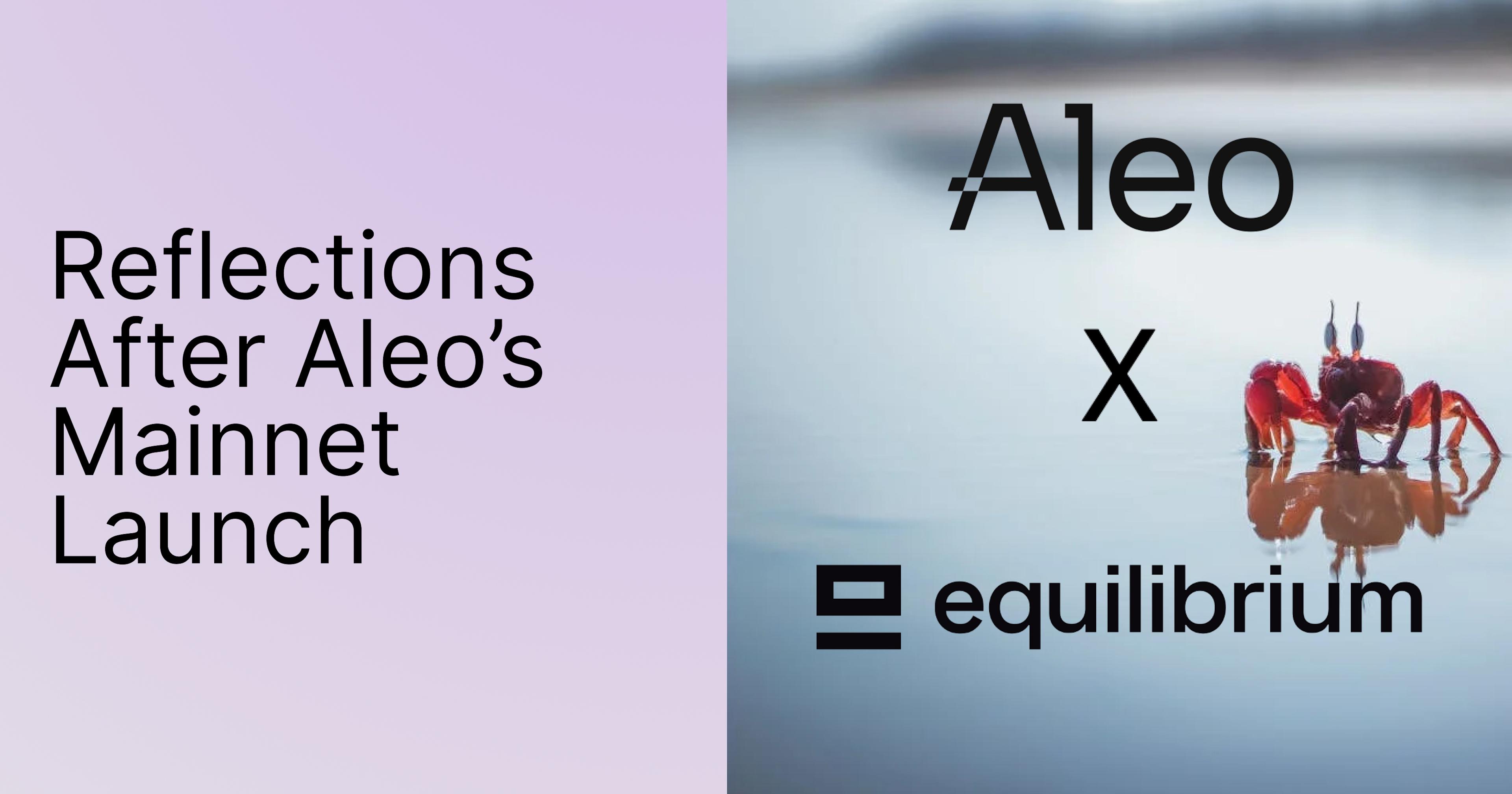
Background
Equilibrium started working on Aleo back in 2020 when ZKPs were still mostly a theoretical concept and programmable privacy in blockchains was in its infancy.
We deeply cared about improving privacy in blockchains and wanted to help bringing the ambitious vision behind ZEXE to life.
While we started with just one person, over time the team grew to five people working on various elements of the stack simultaneously. More than four years later and after several twists and turns, Aleo is finally live on mainnet!
Considering that most blockchain interactions today are still fully public, Aleo’s mainnet launch is a huge step forward for programmable privacy in blockchains (with several other teams building towards this shared vision). Developers that want to incorporate some privacy guarantees into their application no longer need to implement cryptography from scratch or create an entirely new (application-specific) blockchain.
Working on Aleo for the past four years has been a true privilege. While in many ways, this is only the beginning and there is still a lot of work ahead, we wanted to take a moment to reflect on the journey thus far and highlight some of our key contributions on the engineering side.
Equilibrium’s Key Contributions To Aleo
SnarkVM
SnarkVM is the zero-knowledge execution environment (zkVM) run by clients and nodes. It includes the core cryptography primitives and is responsible for proof generation among other things.
Our main contributions here relate to finding and implementing optimizations that led to several significant performance improvements. Some of these include:
Merkle tree performance tweaks: Doing the hashing on each level of the Merkle tree in parallel, which brought an 86% improvement to the time of loading the snarkOS ledger.
Improving the performance of R1CS: Reduced runtime by 34%, allocations by 12%, and max RAM by 69%.
Reducing max RAM when verifying deployment transactions: Led to a 20% reduction in max RAM used (for specific, large edge case programs).
Speed up get_map_confirmed: Applying parallelism to speed up finalization by around 80%, making late-stage sync a lot faster.
Reduce the size of Variable: Resulted in significant performance improvement across several benchmarks.
You can find a full list of our contributions to SnarkVM here.
SnarkOS
SnarkOS is the node software that forms the backbone of the Aleo network. It handles P2P networking and communication between the nodes, verifying transactions and consensus.
We’ve contributed to multiple iterations of snarkOS as it evolved across 3 testnets to mainnet, and more closely to the networking and consensus protocol (more details on these below).
You can find a full list of our contributions to SnarkOS here.
Networking Stack
The networking stack is responsible for peer-to-peer (P2P) communication between nodes.
We designed and implemented a custom modular networking stack for Aleo which is robust and performant (low resource use). A modular structure for the networking stack allows for:
More flexibility and easier upgradability
Faster network-only tests (isolated testing) and larger-scale tests related to the network (e.g. peering).
Simplicity
If you want to explore the networking stack further, you can find the GitHub repo here.
Consensus Protocol (AleoBFT)
Aleo was initially planning to go with a Proof of Work (PoW) consensus model but pivoted* after testnet 2 due to risk of network centralization. Instead, it was decided to implement a Proof of Stake (PoS) consensus model based on Narwhal-Bullshark (NB) - a DAG based byzantine fault tolerant (BFT) consensus model. It’s split into two parts: Narwhal (Data dissemination) and Bullshark (Ordering of transactions and blocks).
We were involved in both the design and implementation phase:
Following the decision to change to PoS consensus in early 2023, we researched different options and ultimately recommended Bullshark BFT (which was new at the time).
In the implementation phase, we supported the Aleo team on integrating the Bullshark BFT to the rest of the protocol (snarkOS and snarkVM) along with testing and optimizing the protocol.
*There is still a PoW element in Aleo through the Coinbase Puzzle which aims to accelerate ZK hardware, but it’s separate from consensus.
Fuzzing and Testing
Fuzzing is a systematic approach to testing the input space of a particular program or function that aims to uncover bugs, vulnerabilities, and edge cases. A naive example would be a function that adds two numbers, in which case a fuzzer will generate random inputs to that function and aim to find edge cases as a result of exploring the entire input space.
Using structure-aware and grammar-based fuzzing, we fuzzed snarkVM execute calls for Leo programs at the Aleo instruction level. In other words, generated random yet syntactically and semantically valid programs that were inserted into the VM to test for edge cases. We used AFL++ which is a combination of tricks and generic algorithms to refine the input space. In our case, the input was Leo programs (rather than two numbers as in the naive example above).
We also leveraged AFL and libfuzzer to fuzz different network messages, revealing issues that were later patched. This didn't require structure or grammar awareness though. Additionally, we introduced property tests to verify properties like invertibility of the BFT protocol message codecs.
What’s next?
Our commitment to advancing the adoption of privacy in blockchains remains as strong as before, if not stronger.
While we’ll continue to work on Aleo post the mainnet launch, we are also looking for new challenges and other ways to contribute in the privacy space. If you are building something novel or have a crazy idea that you’d like to get some input on - we’d love to hear from you!
Finally, if you’d like to join our small team of engineers, cryptographers and economists to help make the vision of a more open, private, and distributed internet a reality - we are hiring.
P.S. To learn more about Aleo, you can take a look at our deep-dive article from last year (some parts are a bit outdated, but most of it is still relevant).
Continue reading

May 28, 2025
State of Verifiable Inference & Future Directions
Verifiable inference enables proving the correct model and weights were used, and that inputs/outputs were not tampered with. This post covers different approaches to achieve verifiable inference, teams working on this problem, and future directions.
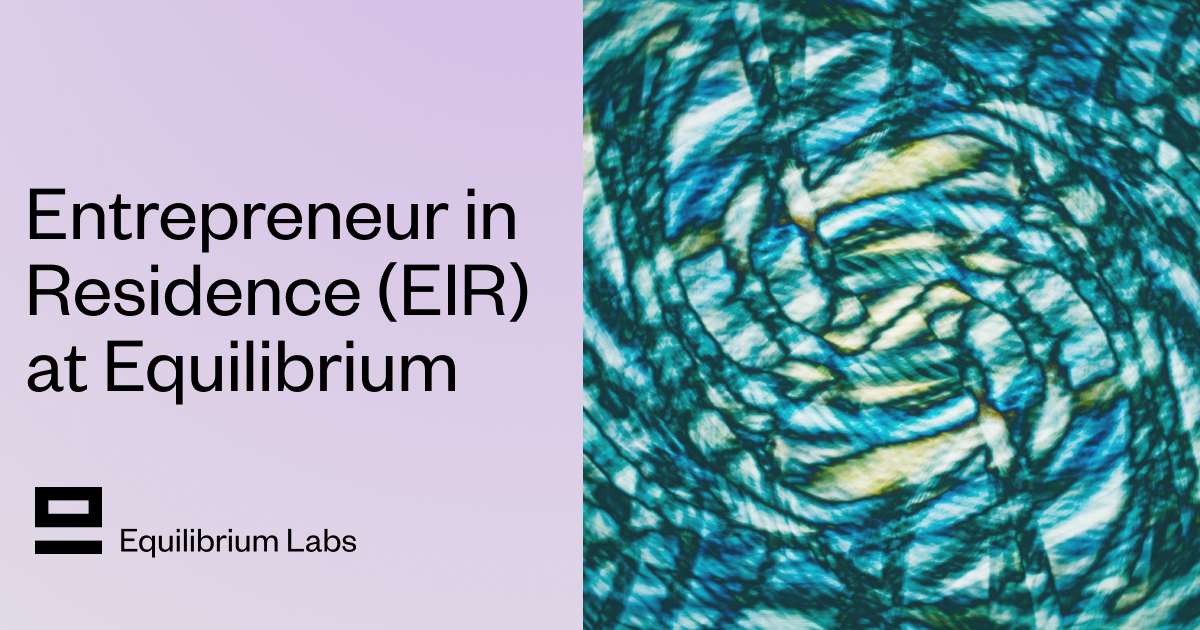
March 25, 2025
Introducing Our Entrepreneur in Residence (EIR) Program
After 6+ years of building core blockchain infrastructure across most ecosystems and incubating ventures like ZkCloud, we're looking for ambitious pre-founders with whom to collaborate closely.

March 10, 2025
From Speculation to Utility: Next Steps For Onchain Lending Markets
Despite its promises, onchain lending still mostly caters to crypto-natives and provides little utility besides speculation. This post explores a path to gradually move to more productive use cases, low-hanging fruit, and challenges we might face.
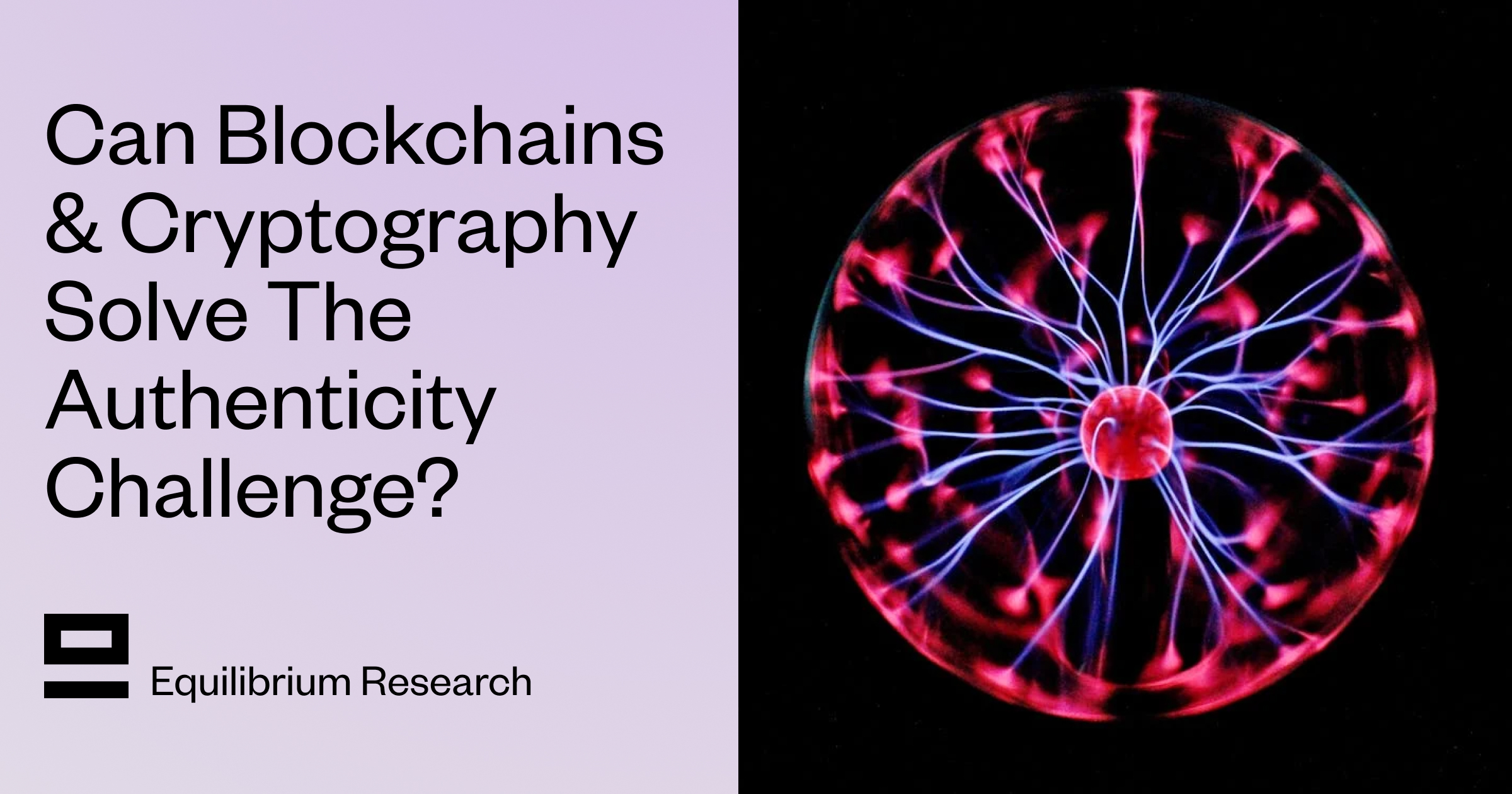
February 18, 2025
Can Blockchains And Cryptography Solve The Authenticity Challenge?
As gen-AI models improve, it's becoming increasingly difficult to differentiate between AI- and human-generated content. This piece dives into whether cryptography and blockchains can solve the authenticity challenge and help restore trust on the Internet

February 6, 2025
Vertical Integration for both Ethereum and ETH the Asset
In recent months, lackadaisical price action and usage growing on other L1/L2s has driven a discussion on what Ethereum’s role and the value of ETH, the asset is long-term.

January 29, 2025
Equilibrium: Building and Funding Core Infrastructure For The Decentralized Web
Combining Labs (our R&D studio) and Ventures (our early-stage venture fund) under one unified brand, Equilibrium, enables us to provide more comprehensive support to early-stage builders and double down on our core mission of building the decentralized web

November 28, 2024
20 Predictions For 2025
For the first time, we are publishing our annual predictions for what will happen by the end of next year and where the industry is headed. Joint work between the two arms of Equilibrium - Labs and Ventures.

November 7, 2024
9 + 1 Open Problems In The Privacy Space
In the third (and final) part of our privacy series, we explore nine open engineering problems in the blockchain privacy space in addition to touching on the social/regulatory challenges.

August 12, 2024
Do All Roads Lead To MPC? Exploring The End-Game For Privacy Infrastructure
This post argues that the end-game for privacy infra falls back to the trust assumptions of MPC, if we want to avoid single points of failure. We explore the maturity of MPC & its trust assumptions, highlight alternative approaches, and compare tradeoffs.
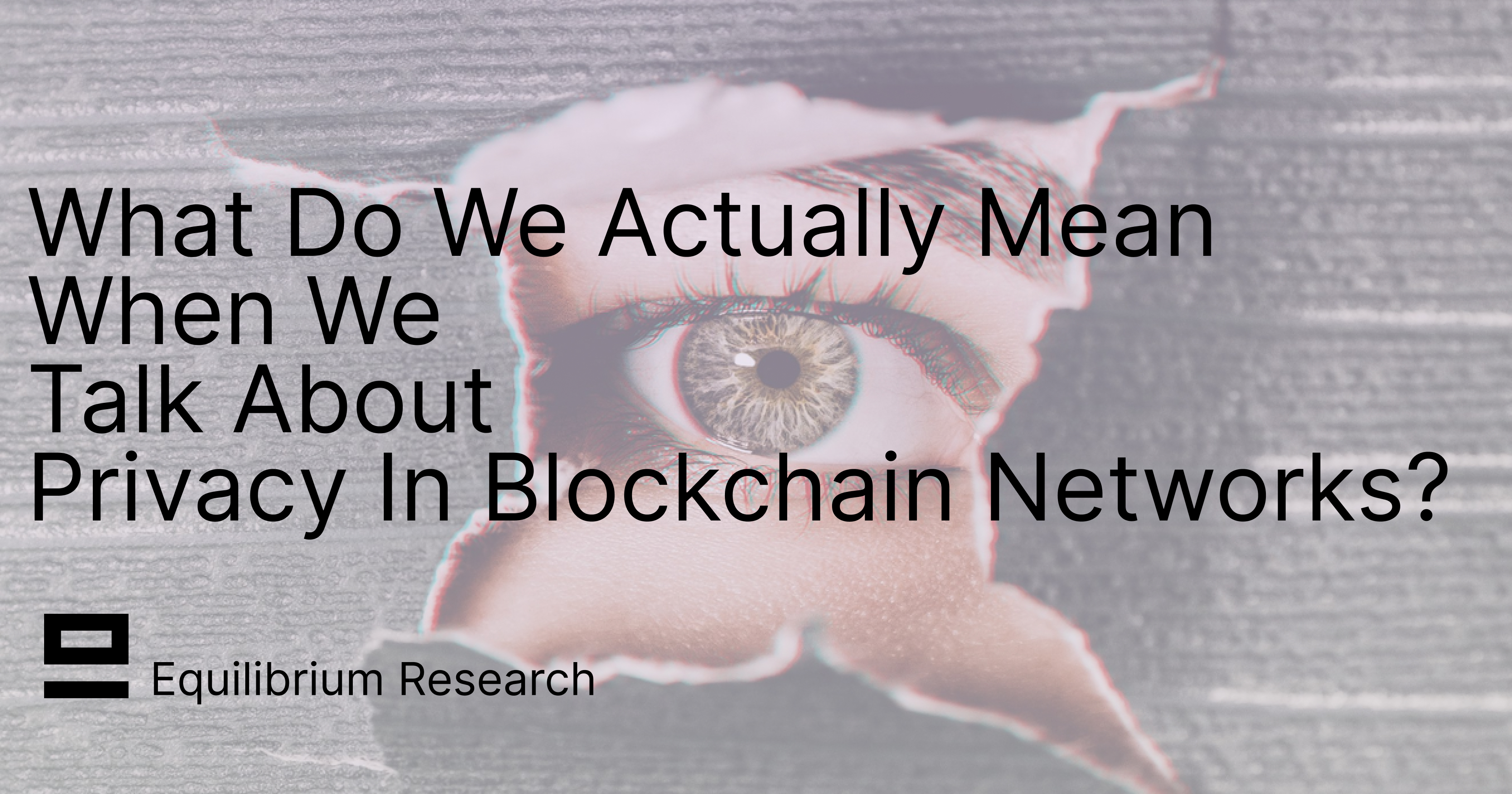
June 12, 2024
What Do We Actually Mean When We Talk About Privacy In Blockchain Networks (And Why Is It Hard To Achieve)?
An attempt to define what we mean by privacy, exploring how and why privacy in blockchain networks differs from web2, and why it's more difficult to achieve. We also provide a framework to evaluate different approaches for achieveing privacy in blockchain.

April 9, 2024
Will ZK Eat The Modular Stack?
Modularity enables faster experimentation along the tradeoff-frontier, wheras ZK provides stronger guarantees. While both of these are interesting to study on their own, this post explores the cross-over between the two.
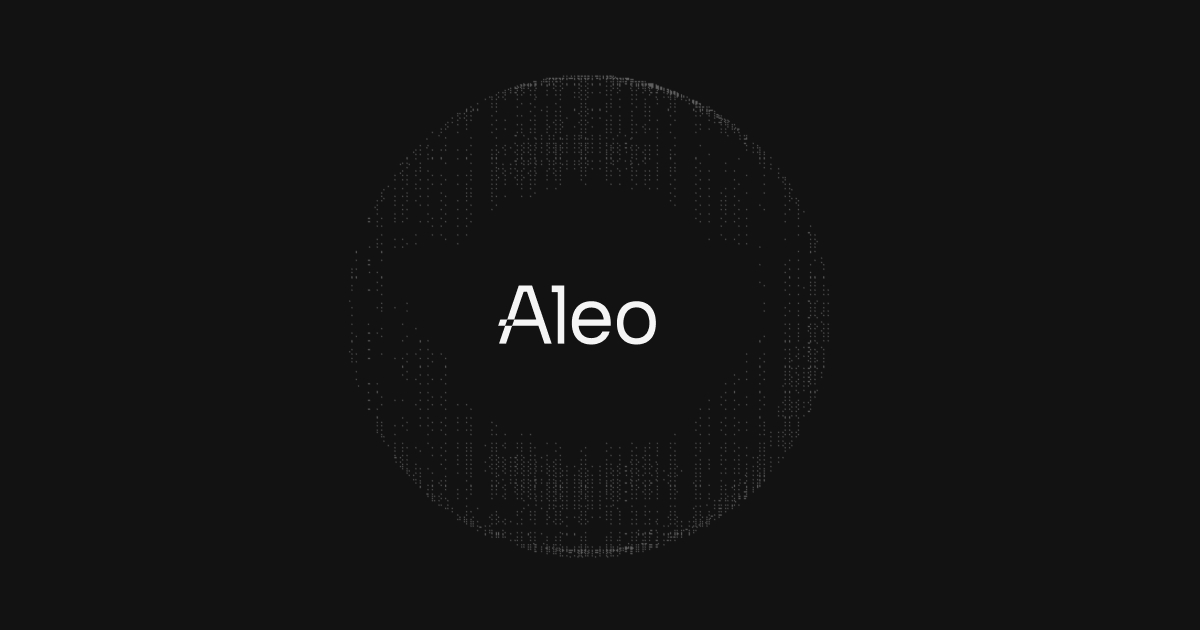
October 5, 2023
Overview of Privacy Blockchains & Deep Dive Of Aleo
Programmable privacy in blockchains is an emergent theme. This post covers what privacy in blockchains entail, why most blockchains today are still transparent and more. We also provide a deepdive into Aleo - one of the pioneers of programmable privacy!
March 12, 2023
2022 Year In Review
If you’re reading this, you already know that 2022 was a tumultuous year for the blockchain industry, and we see little value in rehashing it. But you probably also agree with us that despite many challenges, there’s been a tremendous amount of progress.

May 31, 2022
Testing the Zcash Network
In early March of 2021, a small team from Equilibrium Labs applied for a grant to build a network test suite for Zcash nodes we named Ziggurat.
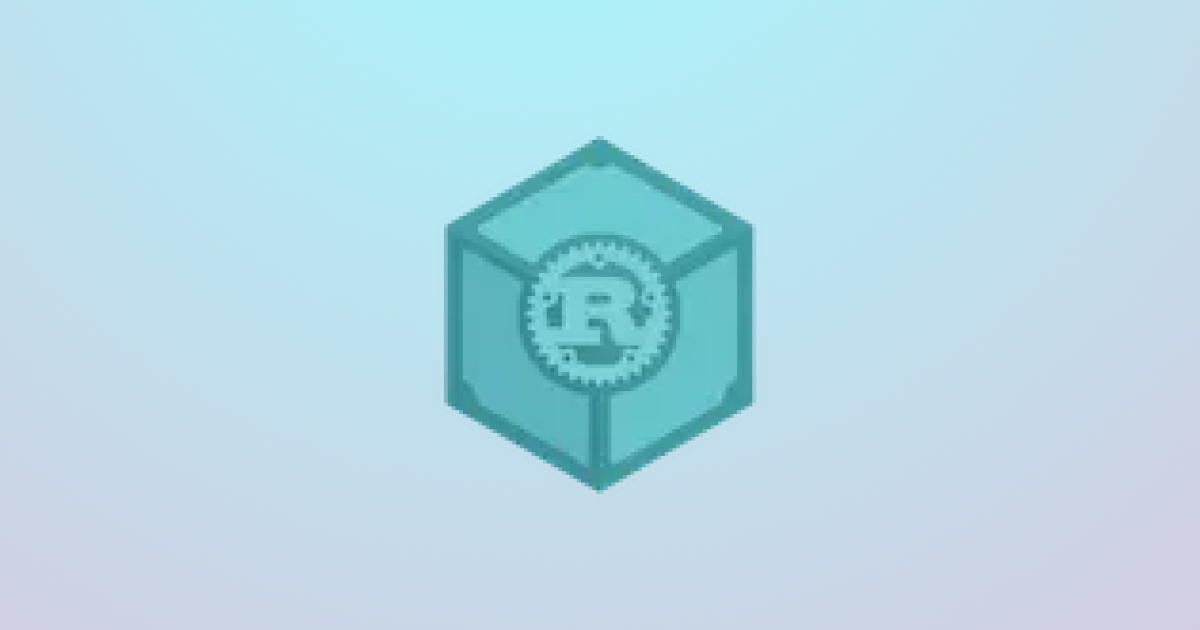
June 30, 2021
Connecting Rust and IPFS
A Rust implementation of the InterPlanetary FileSystem for high performance or resource constrained environments. Includes a blockstore, a libp2p integration which includes DHT contentdiscovery and pubsub support, and HTTP API bindings.
June 13, 2021
Rebranding Equilibrium
A look back at how we put together the Equilibrium 2.0 brand over four months in 2021 and found ourselves in brutalist digital zen gardens.
January 20, 2021
2021 Year In Review
It's been quite a year in the blockchain sphere. It's also been quite a year for Equilibrium and I thought I'd recap everything that has happened in the company with a "Year In Review" post.


